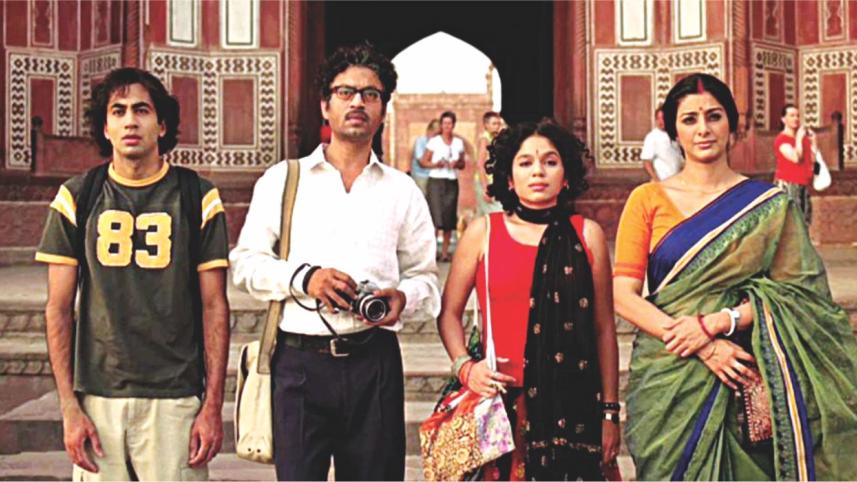Negotiating Culture and Identity

On January 1988, an apprehensive woman boarded her first flight all alone, not knowing what to expect as she crossed the waters into the unknown. The journey took around a day, taking into account getting through airport security and baggage claims. And then at dawn the doors opened, and the woman was met by the burst of hot dusty winds of Saudi Arabia slicing into her face and drying her pores. Unlike Bangladesh, she knew she would not be able to smell the wet earth after the rains. She did not know when she would ever see it rain again.
That woman was my mother, and on October 18th that year, I was born.
All TCKs (third culture kids) more or less have the same origin story. No matter where we come from, it all starts the same way--through that first flight across oceans, our roots begin with dislocation. From then on what follows is continuous process of reclaiming ourselves, through the consolidation and repudiation of cultures between our country of origin and where we grow up. For children of migrants, knowing where we are “from” is a long-standing dilemma. For their parents, it is the constant struggle of trying to instill within them a patriotic pride whilst also enabling us to utilise the facilities and resources we would not have access to “back home.” Home away from home in this instance is our parents, where we come home to our mother tongue, and the table laden with bhaat, daal and other accompaniments. The outside domain however, remains a space where we must reject our culture of origin in order to blend in at school and work. What inevitably follows is a feeling of ambiguity as we try to govern our desires through the abstraction of cultural borders laid down by the country of origin and abroad. This in turn manifests in the way we interact with parents and the decisions we make throughout our lives.
In the Post-Colonial world, migration results in the formation of diasporas abroad with distinct national identities. It is not unusual to take a walk through Manhattan or Queens and stumble upon Chinatown or Jackson Heights, suddenly finding yourself in a world vastly different from the one it is contained in. The tourist would find himself doubly dislocated, a strong presence of an ethnic culture within a Western domain. These diasporas are a phenomenon created and subjected to the collective human consciousness, much like the national borders they seek to mimic. Benedict Anderson highlights this best in his book “Imaginary Communities,” where he describes the occurrence of a nation state as cultural artifacts that “command such profound emotional legitimacy,” giving rise to “imagined communities.” Therefore for a child born away from its nation of origin, national identity becomes a birthright along with gender where his or her actions are subjected to gendered roles presiding within the nationalistic culture.
If migration is the relocation of families from one place to another, marriage plays a crucial role enabling women to move abroad. The woman also becomes the cultural center both at home and abroad, as the home becomes the cultural space she must preserve through motherhood. However culture is dynamic and heterogenous, and therefore as shifting ideals result in changes within our social spaces, so does the position of women. The mother would find herself in the dual position as both free from the traditional demands in her national society where she does not have to cater to the presence of in-laws at home, as well as confined within the performative gendered role of a wife and mother, responsible for passing down the cultural heritage.
As a daughter I often found myself within the conflicted position of rejecting what my mother has stood for, as well as finding bits of her within my image. The lives of migrant daughters further reshape the myth of women as they venture forth into undefined spaces, and cultural changes within national territories and crossing borders lend to our plurality, which cannot be controlled and therefore rejects any efforts towards our subjugation. And although I will never know where I am from, I will always know who I want to be.



 For all latest news, follow The Daily Star's Google News channel.
For all latest news, follow The Daily Star's Google News channel.
Comments